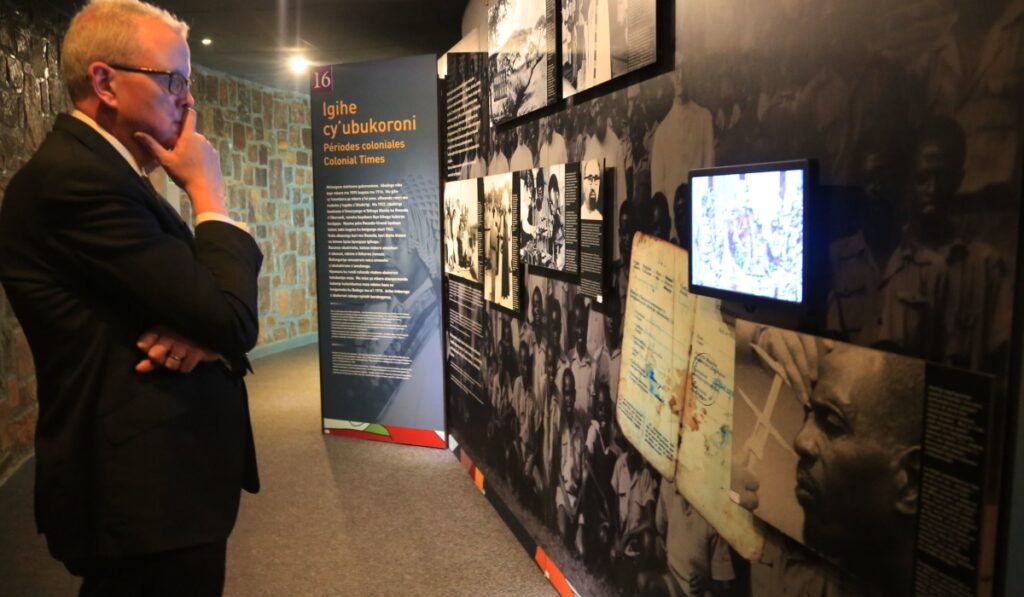
A time they had of it. A selfish, greedy, covetous, divisive, incendiary, destructive, genocidal time. A time, in their pea-mindedness, they thought that riches meant banishing and killing off as many of their compatriots as possible and having all available bushland to themselves.
A time they marvelled at their herds upon herds of sheep and goats freely grazing to their fill. We are talking about some Rwandans of yore. Yore being 1959-1994.
Strange bunches of people, those, but then, there they were.
Take this Bumbogo Hill in Bumbogo Sector. At the time it was actually outside the bounds of Kigali City. A few kilometres from the city centre but still rural. And so it didn’t stop an odd government official from living on farmland.
Which meant that the government officials in many areas doubled up as commercial farmers. Thus, their possession of, and trade in, farm produce, livestock, poultry and others, with farming taking more of their time than government work.
Mind you, livestock strictly included sheep, goats and whatever else as long you did not stray into cattle keeping. For being associated with a section of Rwandans dubbed enemies of Rwanda for God-of-Rwanda-knows what reason, cattle were taboo and none was allowed to own them.
Interestingly, it was an open secret that bigwigs in government reared cattle away from prying eyes, in forests like Gishwati, for example. How did they explain their capabilities of selling cow milk to the citizens whose nutrition they were supposed to advance?
But silly me, I forget. Advancing their citizens was not in their vocabulary. So, they sold the milk to the few people who’d bribed their way into owning businesses. Who, being privy to their politicians’ conniving ways, provided the conduits through which cow milk was passed off as imported for special medical reasons.
Milk was good as long as it was not from Rwandan cows. Ridiculous does not begin to describe the workings of our compatriots’ twisted minds!
A funny lot but, there they were.
Greedy and grabbing-up all the wealth as they were, the story is told of how these government bigwigs used to live in ‘nyakatsi’ houses (grass-thatched mud houses), in spite of it all. They were surrounded by banana groves, beyond which stretched the rest of their lands. The tell-tale of the existence of their houses were curls of smoke rising from their grass thatches.
How their government vehicles used to rock their way through bumpy tracks that led to their shacks, it’s neither here nor there. It was up to their government to worry about that. Did they have any connection with their government? Again, ask the birds!
So Kigali, as the country’s city, did not have any decent buildings. Most of its area competed with the countryside for bush, even as the then kahuna of all kahunas bewailed that the country was like a glassful of water; a ‘return’ of an extra drop would make all the water in the glass spill!
For this so-called city, one needed only to stand atop one of its hills to see the total number of modern buildings that existed in the city centre and also its rural parts. Apart from four none-too-spectacular hotels – relative to today’s sundry swanky hotels – there was the Central Bank (BNR), CND (housing parliament) and Telecom House, as the only modern buildings.
Yes, there was also the residence of that kahuna of all kahunas ruling the country which, uncannily enough, sat cosily directly under the path of landing aeroplanes! Perhaps to satisfy his penchant for the deafening sound of the white man’s wonder invention and as a mark of his being superior?
Fascinatingly, it turned out to be a foreboding memory he left Rwandans to remind them that, as a superior being, he’d meet his maker in his in-house church, on his compound grounds. Moreover, it enabled him to leave his vital pair of body organs as parting souvenirs, on one of the branches of his compound trees, it’s said. Plus, he managed to give an alert to his now-jobless snake to flee?
But ours is not to dabble in gossip. Ours is to mourn about how this land of erstwhile women and men of valour, uprightness and comradeship had so miserably been brought down on its knees.
Because if Kigali and its politicians and rich businessmen/women were in this state, you can imagine the greed, meanness, desolation, squalor, brutishness, say it, of the country folk. None communicated frankly with another; none, therefore, cared for another. The land was heartless.
For a people who had brushed off slave trade; kept colonialism at arms’ length; agitated for independence from colonial hegemony only to be betrayed by their own at the last minute, it was the shame of the century. And yet the traitor compatriots partied all through shamelessly.
Till gallants of the land laid their lives on the line and Rwanda’s honour was restored. This is a story that’s been written in blood and it’ll never be erased by anything, to half-quote President Kagame.
29 years after that shame, Rwanda is decidedly transformed. When she talks, the world listens.

